Why do we still read paper books?
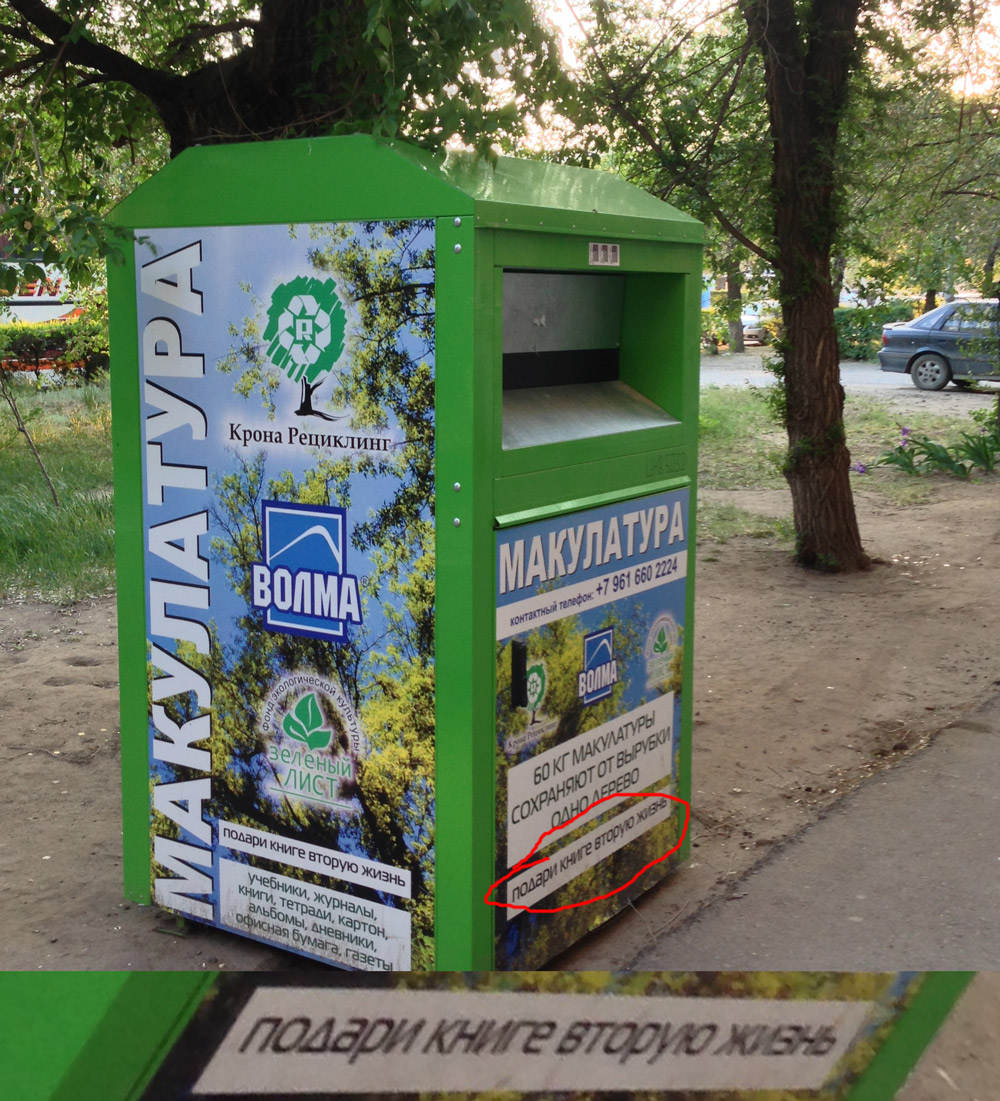
Logically, paper history should be almost completely dead already. Like records, CDs and video tapes. Some bookshelves now look more like tableware stores, souvenirs and stationery with our games - and a separate shelf in the corner for books.
But at the same time, publishing houses are still dancing from paper copies, our experience with the press kiosks in Moscow showed that selling 20 kilograms of newspapers a day from one point is not at all a matter of principle. And I recently saw a lively paper library in the city for 700 people, saw the culture of reading newspapers in Germany and a bunch of other strange things.
And I continue to buy paper books, although I read more and more from the screens. Perhaps I am a retrograde, of course. But a couple of years ago, I was very interested in what can be done with this market, and below are a few “finger-to-nose” calculations on why it can’t be finished.
The paper book is taken from the publisher. The publisher makes a large and complex process of its launch, which takes six months. Then the paper book is put up for sale in the network of bookstores in physical form and in the network of online stores in electronic form (and in physical form for delivery).
The ratio of paper to electronic form known to me is about 10 to 1 in business literature (data for 2016). Indicators vary from book to book and from genre to genre, but buying electronic versions does not exceed buying paper.
But! The distribution of electronic versions substantially exceeds the distribution of paper versions - thanks to the pirates here. For example, according to my book about 20 thousand sold in paper, 2 thousand in the electronic version and about 50 thousand pirated downloads.
The first hypothesis: the electronic version of the book can cost 50 rubles and spread to a third of the pirated volumes as a minimum. But the publisher can not reduce the cost of the electronic version too much - because then the paper will not be sold. And the paper remains the backbone of the publisher’s financial model.
The second hypothesis: the publishing house prevents the distribution of the book. I know it sounds strange, but the logic is this: the pirates do everything to distribute data as widely as possible and faster. The publisher is struggling with pirates, but does not particularly replace their demand. Yes, a little more people buy a book when they cannot download it in one click, but not as much as they would read it in total.
In this place you need to try to figure out why paper books are still alive. We had a wonderful brainstorming with the guys from “Eksmo” on Zilantkone, and the conclusions are approximately as follows:
“I am too well brought up to get rid of the book”
This mental barrier prevents me from taking and throwing out the book. I ran into him too. Leave at the entrance or carry to second-hand bookshop - it is still somehow possible. But throw or burn - no.
“I like to read from paper”
I also loved until I started a normal reading room and began to read business literature from a tablet. There are publications that can and should be read only from paper, but they are less than 2% by subjective assessment.
“I need an item, not a file”
This is my reason to keep the business library - important books are put in the shelf interface that is clear and familiar to me (where you can see everything at once), bookmarks stick out in key places, and the next time you update the OS or change the tablet, all this will not be covered with a copper basin. Well, I have electronic copies.
The situation resembles a story with the fact that at the dawn of music CDs, the removal of records from stores dropped sales. The fact is that the disks are small, and the plates are hefty. People went to the records department, chose an album for themselves there, calm reading everything, and then they bought a CD.
"This is a gift."
To give a file is somehow dumb (for the time being), but to bring a paper book is cool. I give about ten books a year. This is the most convenient way to fumble information. Accordingly, you will not throw out someone else's gift.
“There is an autograph.”
There are people who specifically drop by the authors' autographs. I never believed in this fetish, but I suspect that it is very important to someone.
“The book is a stupid heavy object.”
I saw a C ++ handbook squeezing cabbage in the process of fermentation. He kindled a bonfire with a Soviet economics textbook. Archers often and gladly use old books for targets - arrows do not break when they fall into a polarized environment (between pages), and it is convenient to take them out. It seems that I can not think of other inappropriate uses. Well, I do not believe that it can help the distribution of books.
"It's like clothes"
That is, a home library is a means of communication. You come to visit a person, you look at his books - and you understand who he is. Many hold books for the sake of this rather ephemeral (for me) argument.
“Exchange Resource”
If we are talking about those who are used to doing without network access, for them such libraries are an easy way to change data. You took the book from me to read, I'll take it from you.
No electronic version
This reason was suggested by SirEdvin in the comments. It’s just that the publisher didn’t get fooled and didn’t release the electronic version: this also applies to technical literature, and quite to itself artistic things, which (perhaps because of fear of piracy) are issued only in paper.
And what about the other side?
Household convenience of electronic readers force them to move. You will not take Turgenev's 40 volumes on a campaign (but a battery will not sit at the 37th volume). In the subway with paper is difficult, but with a reading room easier, no need for wide movements.
Well, when you don’t have your own apartment, it’s an excellent engine for the reader’s market, because there’s no place to put books on a removable one.
So, it would seem, everything is predetermined. But no. Bookstores merge into large formations and survive. Books crawl into the gift segment, but they do not leave much of the market. If you believe the report from 2017, the cumulative circulation of paper books over the past 10 years fell fourfold, but the number of publishers almost does not change. There are still a lot of graphs for analysis, from which it follows for me that the paper feels worse, but does not hurry to go nowhere.
Somewhere there are paper comics: surprisingly, there are many shops where they are still alive, and the process is not in replacing paper with electronic versions, but in moving orders to Amazon and other online stores, where a bundle often turns out to be cheaper. How comics live in Russia is generally a big mystery to me.
Book
And now I want to show you a publication that is as cool as it is possible at all:

This is the two-volume book of Harriot’s 1993 World publication. “Mir” is a completely impossible publishing house in our reality, because they turn every book into a small masterpiece. It all starts with gorgeous illustrations that are immediately impressive on the big format:
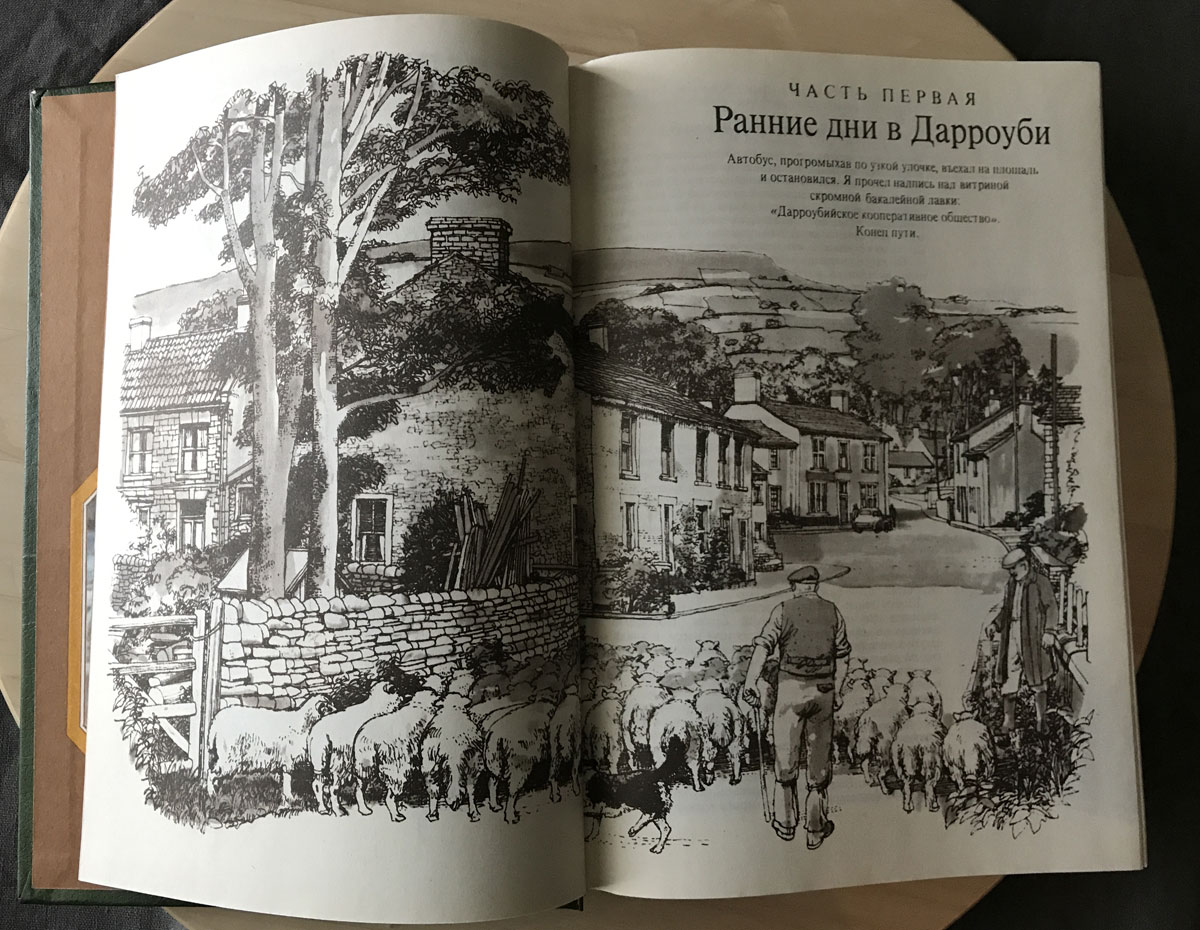
Then you read a regular book about the everyday life of England in the early twentieth century, but ...
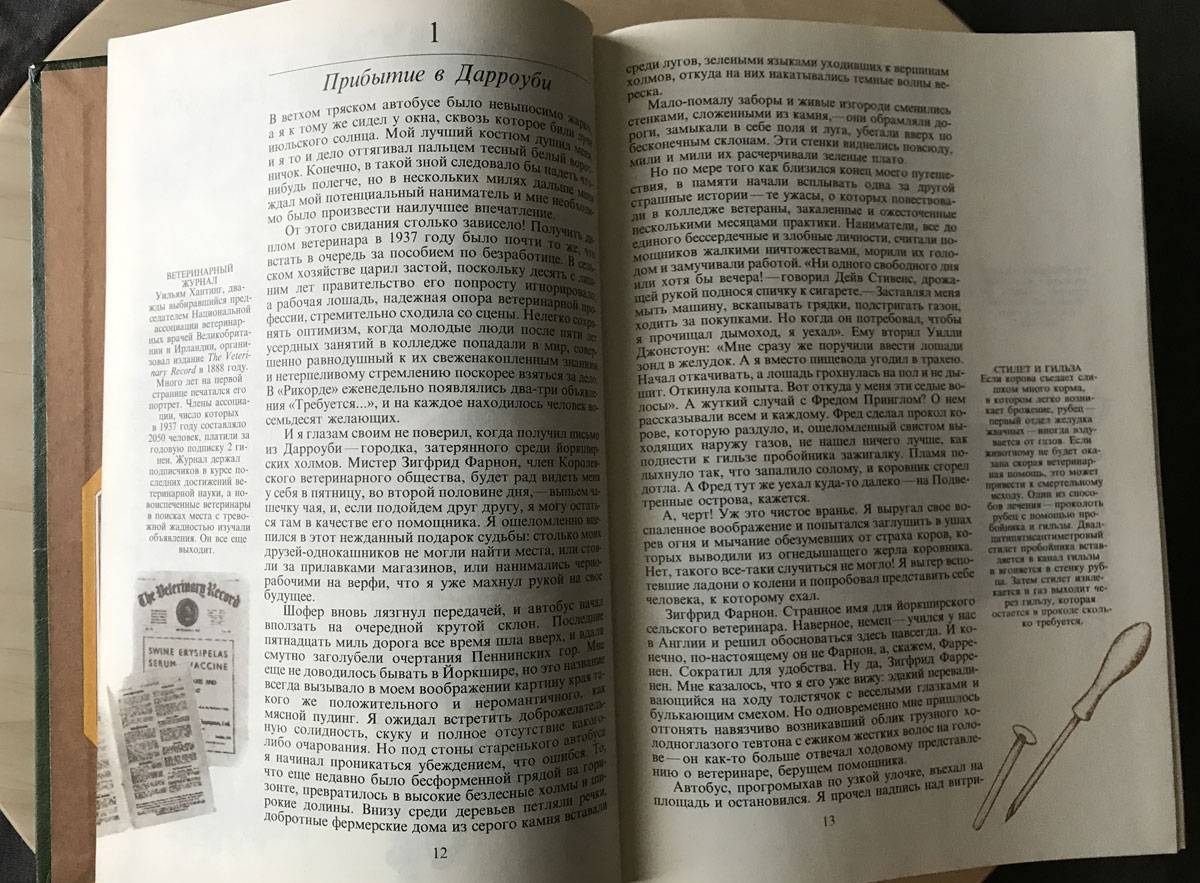
But White should mention at least something that is not familiar to the modern reader as the editor of the publishing house gives the task to draw in the fields and accompany with explanations. On the left - a veterinary journal with a completely non-academic certificate, and an interesting story. On the right is a veterinarian's tool for piercing the cow wall.
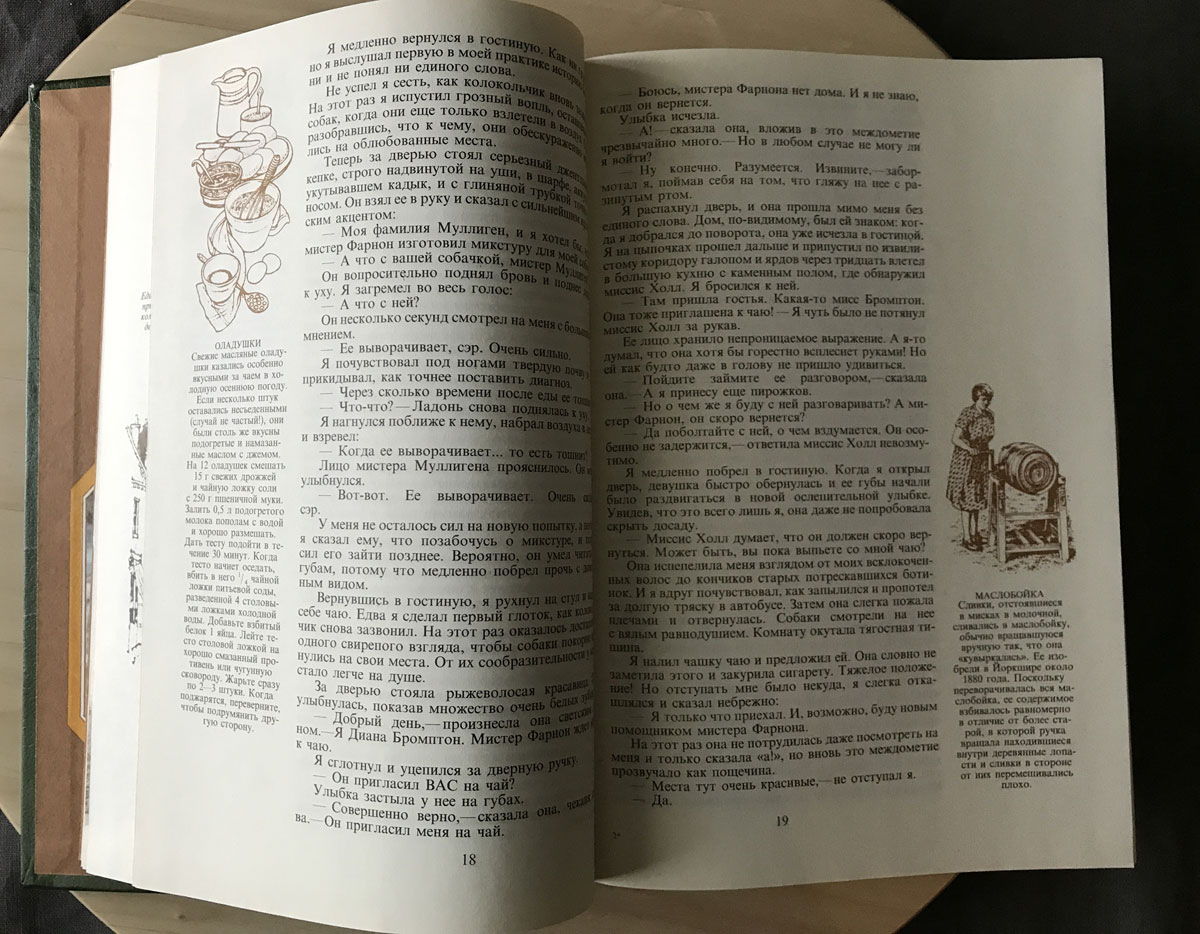
Mistress prepared pancakes? Here is a recipe for you!

Here are more pages from other books of the publisher. This is Animal Behavior:
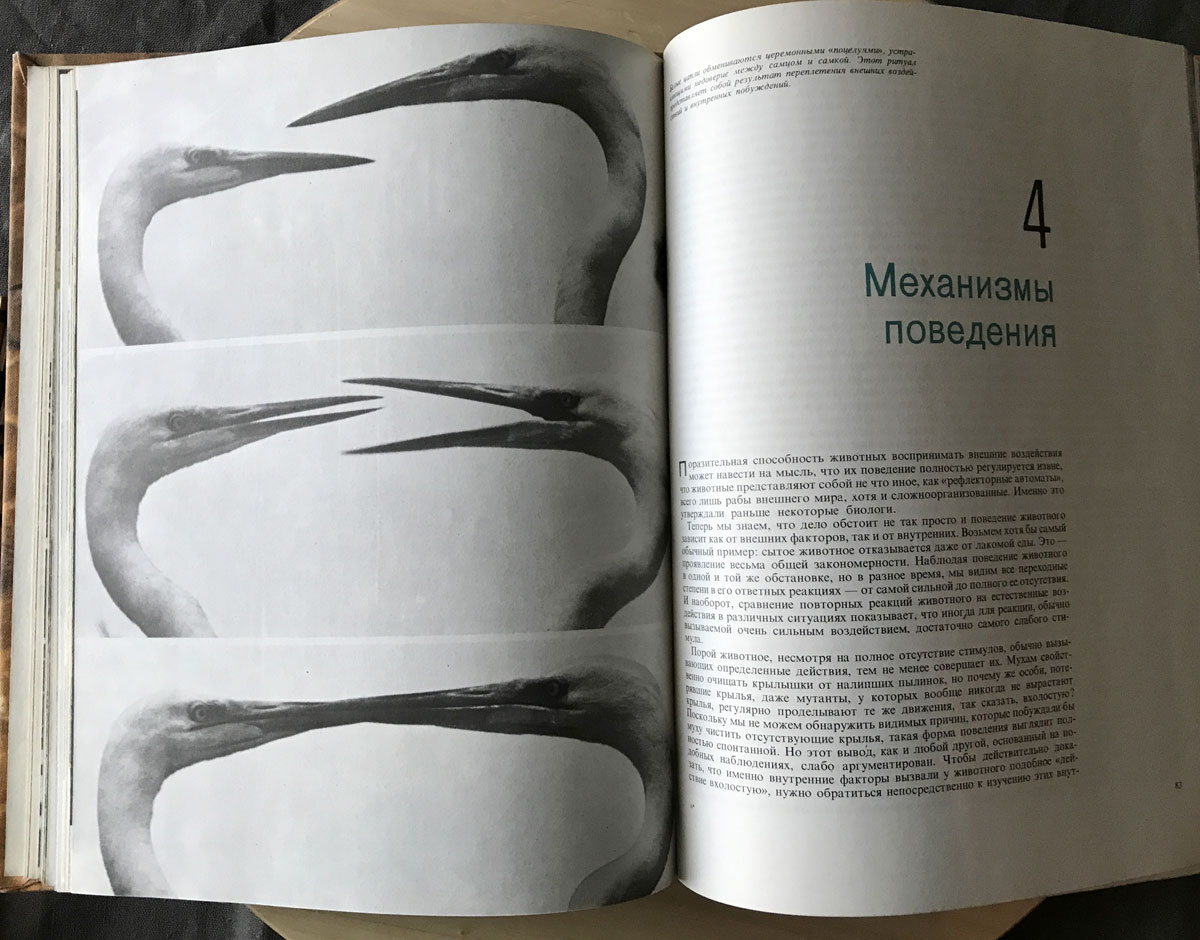
And these three are from Mammals : Do you

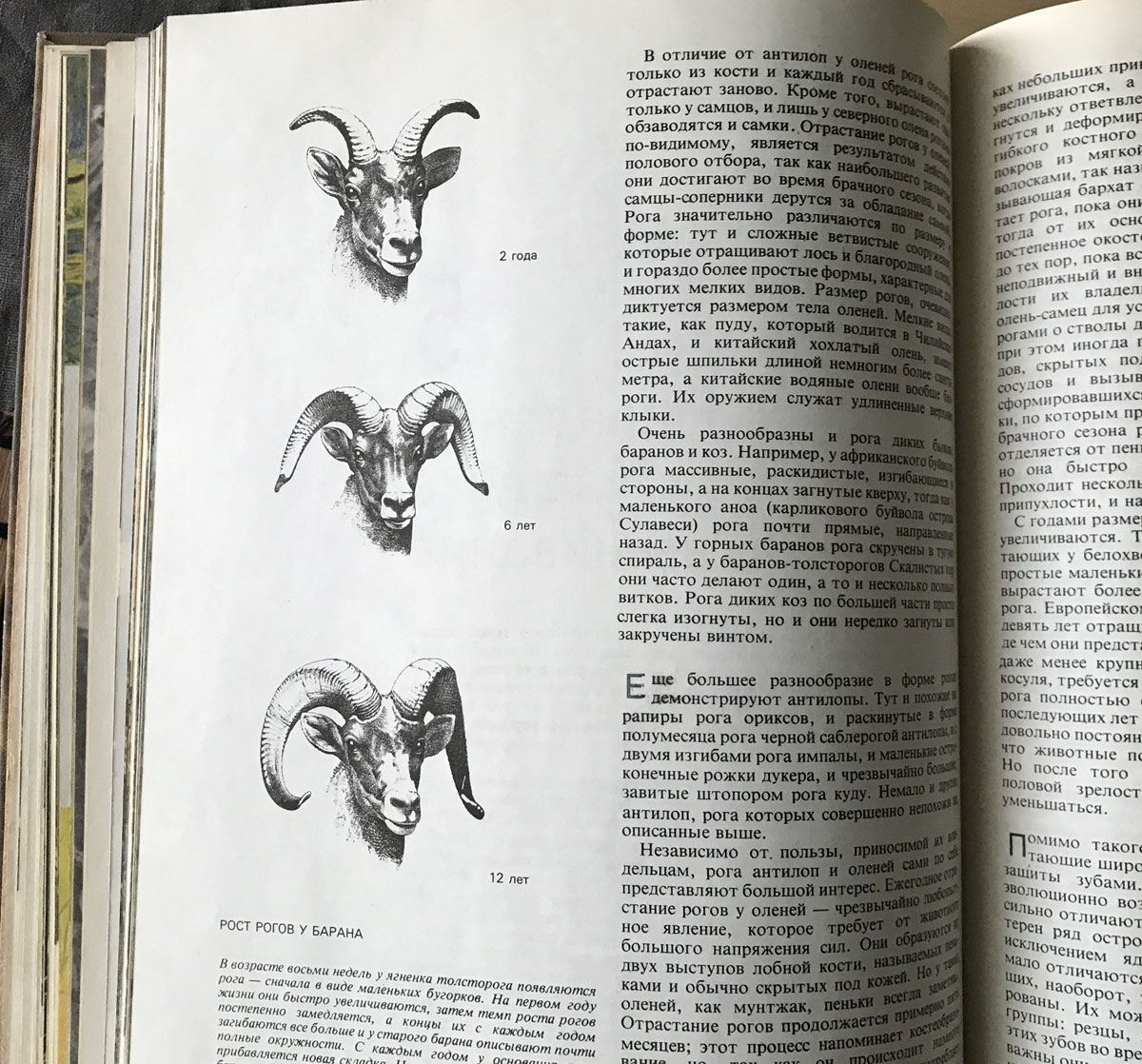
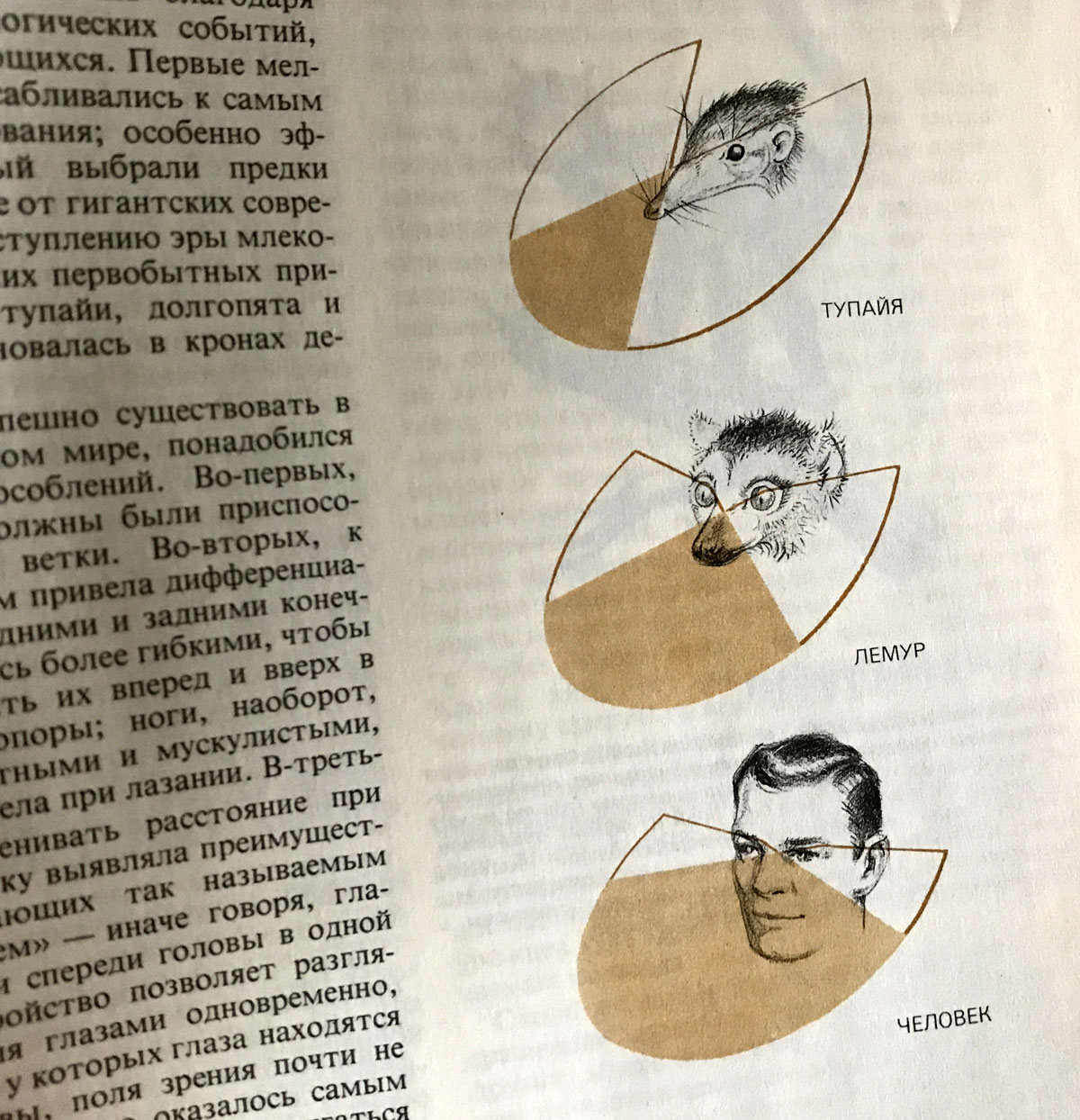
see how cool this paper is to read?
Well, yes. When traveling, I regularly meet a whole cult of a paper book — the more traditional a society, the more important it is. In Australia, there is a shop for the exchange of books on the main street of Darwin (we have second-hand bookstores much less pathetic). But quite an interesting shift in the format: the book shop in Iceland opened a cafe inside itself, and now people come to breakfast and read:
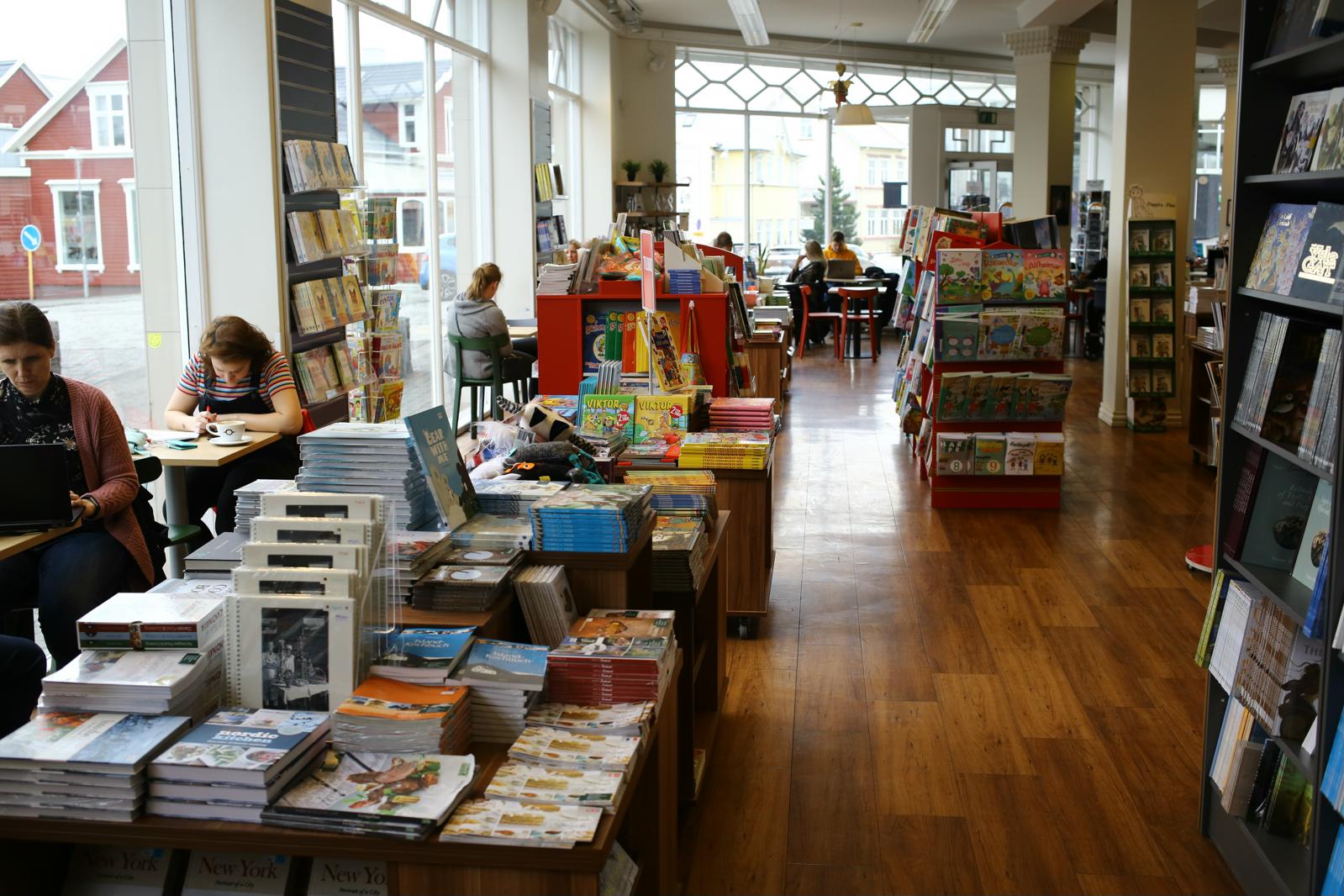
And in Ho Chi Minh City in Vietnam there is a whole book street with book cafes.
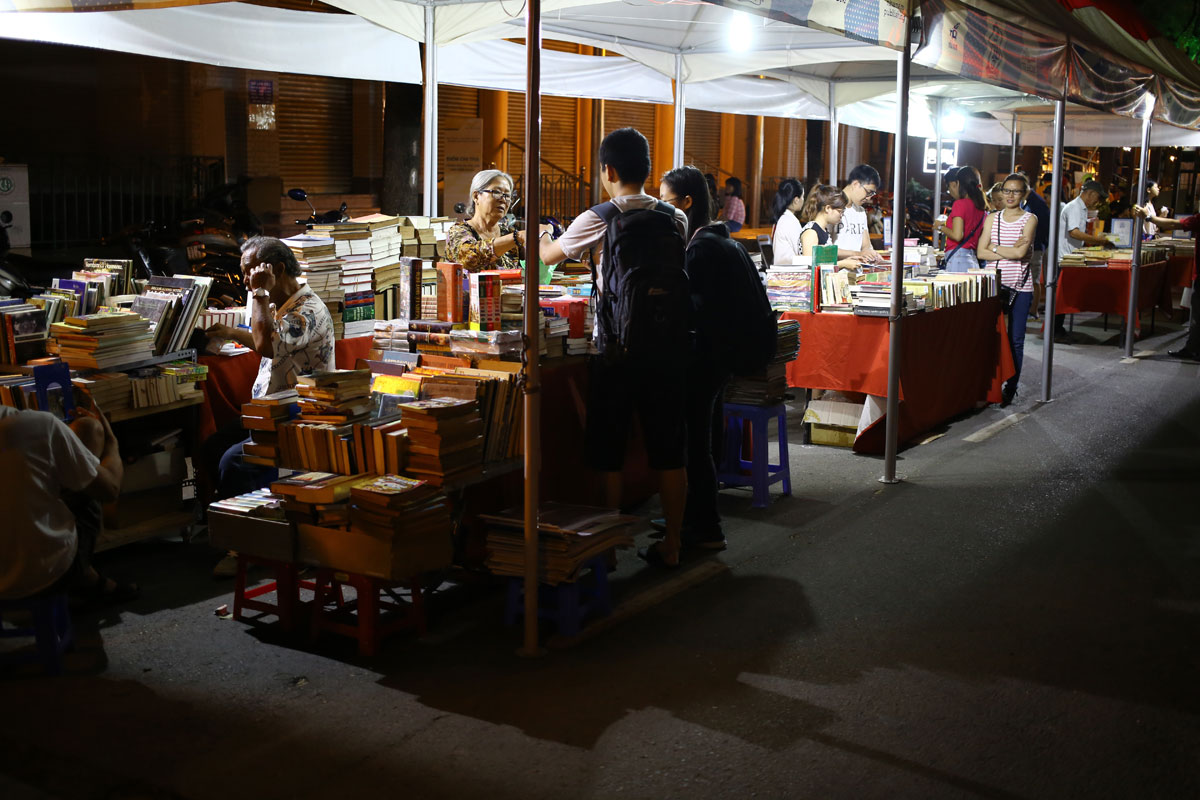


So I do not know exactly what makes us read paper books, but the format is surprisingly alive. I'm not sure that we want to go to this market, but it would be damn interesting to know why you are reading and storing paper (or why you stopped and when). Thank you in advance.
